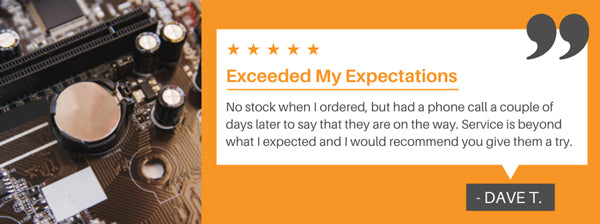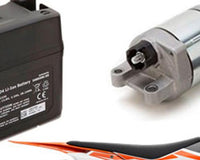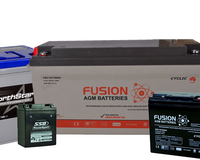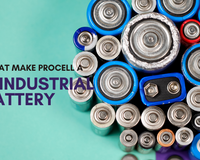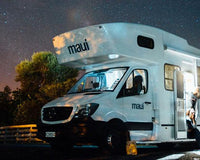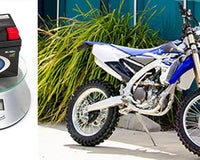Table of Contents
Lithium batteries’ game-changing technology affords several distinct advantages compared to other battery technologies. They typically have the following chemistries:
- Lithium-ion
- Lithium iron phosphate
- Lithium polymer
- Lithium manganese phosphate
The common thread among lithium-based batteries is their fast charging speed, versatility, efficiency, low weight, and overall superior performance.
Today, we’ll zero in on the lithium-ion (Li-ion) chemistry and take a look at this battery’s best uses.
Portable Electronic Devices

Battery to suit Telstra-ZTE T815 3.7V 1200mAh Li-ion
Lithium-ion batteries provide an excellent source of portable electricity. They are used to power a wide range of devices such as mobile phones, laptops, and tablets.
The superior “swing” chemistry responsible for powering the cells, results in high energy densities—despite the small size—-needed for your portable devices.
Understanding Lithium-Ion Battery Chemistry
Both the anode and cathode contain lithium atoms. During the charge reaction (insertion), positively charged lithium ions and electrons are produced at the anode.
The lithium ions then move towards the cathode (inside the electrolyte), where they recombine and join the other lithium ions already at the cathode. The electrons move back during the discharge phase (extraction) like a pendulum, hence the term swing chemistry.
The electrolyte and attached circuit create a conductive environment for the electrochemical exchange of lithium. The electrolyte doesn’t take part in the reaction.
As a result of the type of chemistry and the stability of the electrolyte, the cells don’t need any extra maintenance allowing you to use your mobile devices without issue.
You can discharge and recharge the battery without giving a second thought to maintenance, topping up fluid, or priming.
Also, the cells are extremely lightweight. Lithium is counted among the lightest elements of the periodic table, with a density of 0.534 g/cm3.
To put the density into perspective, consider that the density of water is 1 g/cm3. Unlike other metals, lithium is so lightweight that it floats instead of sinking in water.
On account of this weight, even a baby can lift lithium batteries without incidence, making them suited for all portable devices.
And not only are the cells feather-light, they also pack substantial power. They have a high energy density of 100–265 Wh/kg compared to 60–120 Wh/kg for nickel-metal hydride batteries.
The lithium metal is also non-toxic, making it safer for the environment than other metals such as lead, especially considering the scores of portable device users worldwide. Statistics show that there are over 15 billion cell phone users across the globe.
Side Note: Despite the non-toxic nature of lithium metal, the batteries contain a few oxides such as lithium or manganese oxide, so you still need to recycle your batteries properly to save the environment.

Lithium-ion portable device battery typical specifications.
| Feature | Description |
| Energy Density |
|
| Specific Power |
|
| Charge and Discharge Efficiency |
|
| Self Discharge Rate |
|
| Cycle Durability |
|
| Nominal Cell Voltage |
Electric Cars

L-HVT-2 Ultra High Performance Lithium Ion Phosphate Race Car Battery
Lithium-ion batteries are used in electric cars by most leading car manufacturers including Porsche, Toyota, Nissan, Chevrolet, and Tesla. The batteries have a high energy power output per unit mass, making them suitable for electric vehicles.
The high power relative to mass means the cars can be made as light as possible to travel faster and go for longer distances without recharging constantly.
Their self-discharge rate is very low meaning the battery can hold a charge for longer than lead-acid batteries. Li-ion cells typically discharge at a rate of 1.5–2% per month compared to 3–4% per month for lead-acid batteries.
Additionally, most parts of the lithium-ion car batteries are recyclable, which is a positive factor for the environment.
The battery’s electrolyte doesn’t get exhausted during the electrochemical reaction, so you don’t have to top up the electrolyte periodically like you would in lead-acid battery-powered cars.
Lithium-ion batteries are also fast-charging. They typically take about 30 minutes to get to 80 percent when using fast-charging stations.
Side note: Charging stations are classified into one of three levels, as shown in the table below.
| Level | Voltage | Time to Full Charge |
| 1 | 120 | Full day (and night) |
| 2 | 208 to 240 | Approximately 4 to 6 hours |
| 3 | 400 to 900 | Less than an hour |
In addition, lithium-ion batteries aren’t affected by the memory effect.
The memory effect happens when you charge a battery before it fully discharges. It will memorise the lower life cycle and start operating at that reduced life cycle.
With lithium-ion batteries, you can charge the battery at whichever level and it won't retain any memory.
Most rechargeable batteries need priming before first use.
To prime a battery, you need to charge the battery slowly using a trickle charger to about a 10th of the battery’s capacity. Then discharge and charge it again. You may have to repeat this process several times.
All of this can be quite technical and time-consuming, so the lithium-ion battery is perfectly suited to bring convenience and ease of use in electric vehicles.
Marine Boats

Super Sport Lithium SLFP7ZS Lithium MC Battery
Lithium batteries are often used in marine transportation such as yachts, workboats, speed boats, and leisure boats.
They offer a higher energy density compared to lead-acid or nickel-cadmium batteries. In addition, they have long-lasting battery power that can sustain a boat for extended periods on the water.
They can power the boat up to three times longer than lead-acid or nickel-cadmium batteries before they need a recharge.
The batteries can hold a charge for a long time, typically losing just 5% of their battery capacity per month.
In addition, the batteries will usually last for 3,000–5,000 charge cycles which is typically ten years or longer of useful life.
As lithium is a very reactive element, most manufacturers take extra precautions to seal the battery properly. So, you can be assured that moisture and occasional splashes of water won’t affect the battery one bit.
In addition, Li-ion batteries designed for marine use are fitted with an internal battery management system that will shut down the battery in unsafe conditions reducing the risk of fires.
Frequently Asked Questions
How should I store Lithium-Ion batteries?
Lithium-ion batteries function best if you store them under the following conditions:
- A relatively low temperature of about 15 degrees celsius; the temperature is manufacturer-specific, so be sure to read the storage instruction on the battery label
- Humidity of 60% or lower
- Away from direct sunlight
- In a well-ventilated area
You must not store the batteries in a fully charged state as this may cause them to age quickly, reducing performance.
They must also not be completely discharged when placed in storage for a long time as this may lead to the battery packing in. Also, recharge the battery every 12 months.
Should you take the battery from the device if you are not using it for long periods?
Yes, remove the battery from the device. As long as the battery is inside, it will give a small amount of current until it is fully discharged. If it remains fully discharged for a long time, the cells will become damaged.
How do I stay safe when using Li-ion batteries?
Safety precautions when using lithium-ion batteries include:
- Use batteries that are compatible with the device.For instance, don’t use a marine battery on a car.
- Use manufacturer-recommended chargers.
- Do not keep the batteries close to heat sources such as radiators.
- If you spot anything out of the ordinary such as leaks, odour, change in colour, or bulging, switch the device off immediately.
- Take discarded batteries for recycling; never throw them out with the rubbish.
Get Your Lithium-Ion Batteries
Lithium-ion batteries offer the benefit of efficiency, long-life, and lasting power for a broad spectrum of applications.
Get your lithium-ion batteries from a reputable supplier. At HBPlus Battery Specialists, we have a wide range of Li-ion batteries to meet all your needs and we’ll get your product shipped to you in the shortest time possible.
Place your order today or get in touch with us if you need any help choosing the best battery for your needs.
“I can highly recommend The Battery Specialists both for quality batteries and excellent service. I will be buying again from them”
Paul D Bundaberg, Australia


